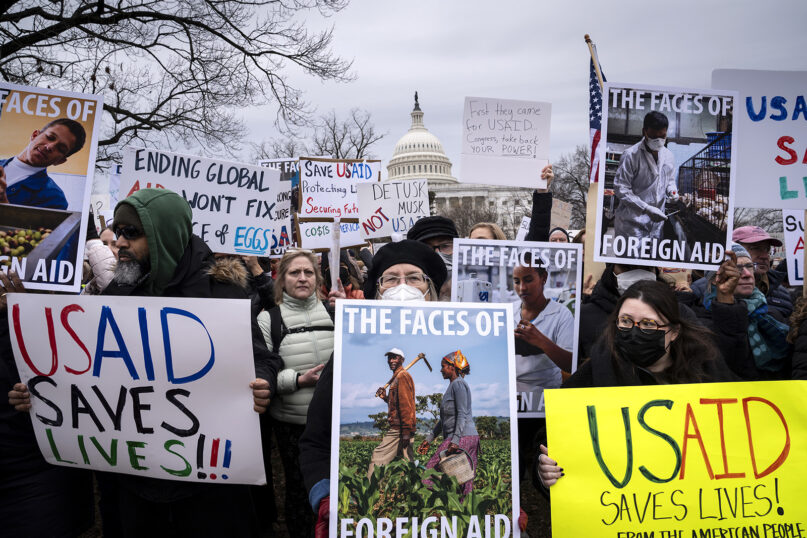(RNS) — As people of faith, we are united by a shared calling to care for vulnerable people, uphold human dignity and extend compassion beyond borders. United States foreign assistance has long been a reflection of these values and has provided lifesaving food, medical care, clean water and education to millions of people around the world.
Today, those critical programs are being dismantled, leaving suffering and death in their wake.
We are members of the Interfaith Working Group on Foreign Assistance, a network of Christian, Jewish, Muslim, Hindu and Buddhist organizations working in solidarity with the world’s most vulnerable people. We have witnessed firsthand the impact of U.S. foreign aid in transforming lives and fostering stability.
The sudden reduction in humanitarian aid and dissolution of the U.S. Agency for International Development have had devastating consequences that will only grow over time. Food assistance programs have been cut, leaving millions of malnourished children at risk of irreversible harm and death. Health care workers no longer have enough funding to provide essential care for tuberculosis and HIV patients, increasing preventable deaths and the spread of drug-resistant diseases. Safe-water initiatives are disappearing, leading to a rise in cholera and other waterborne illnesses. Girls who once had a path to education now face early marriage and human trafficking.
These cuts are not just simple policy choices — they are life-and-death decisions that contradict our deepest values as people of faith. Our call to compassion is not just personal, but a national responsibility. When we turn our backs on the vulnerable, we turn away from the very heart of our faiths.
The U.S. spends around 1% of its budget on international assistance, making it a small investment with profound impact. A recent University of Maryland survey found 89% of Americans say the U.S. should dedicate at least 1% of its federal budget to foreign assistance, with strong bipartisan support.

Demonstrators and lawmakers rally Feb. 5, 2025, on Capitol Hill in Washington, D.C., against the dismantling of the U.S. Agency for International Development, which administers foreign aid approved by Congress. (AP Photo/J. Scott Applewhite)
While division dominates much of our public discourse, this is one issue where Americans stand together: We believe in helping our neighbors, no matter where they live.
Our Interfaith Working Group on Foreign Assistance supporters who traveled to Washington, D.C., earlier this year to meet with congressional offices represented faith communities across the country. They said clearly that now is the time for our leaders to reaffirm their commitment to moral leadership.
For decades, U.S. partnerships — including many with faith-based organizations — have saved lives, strengthened communities and built a more stable world. These programs reflect the best of who we are as a country.
America’s generosity has long been a source of strength. We must not abandon those in need when our help is most critical. International humanitarian assistance has historically enjoyed strong bipartisan support. We urge our leaders to honor this commitment — not just as a policy decision, but as a moral and spiritual imperative.
The sacred texts of our traditions may differ, but they all point to the same truth: We are bound to one another, and we are called to respond with compassion. The American people are ready. Now, we call on our leaders to answer.
(The Rev. Eugene Cho is president and CEO of Bread for the World. Rabbi David Saperstein is senior adviser on strategy and policy at the Union for Reform Judaism. Ahmed Shehata is CEO of Islamic Relief USA. The views expressed in this commentary do not necessarily reflect those of Religion News Service.)







